Affiliate links on Android Authority may earn us a commission. Learn more.
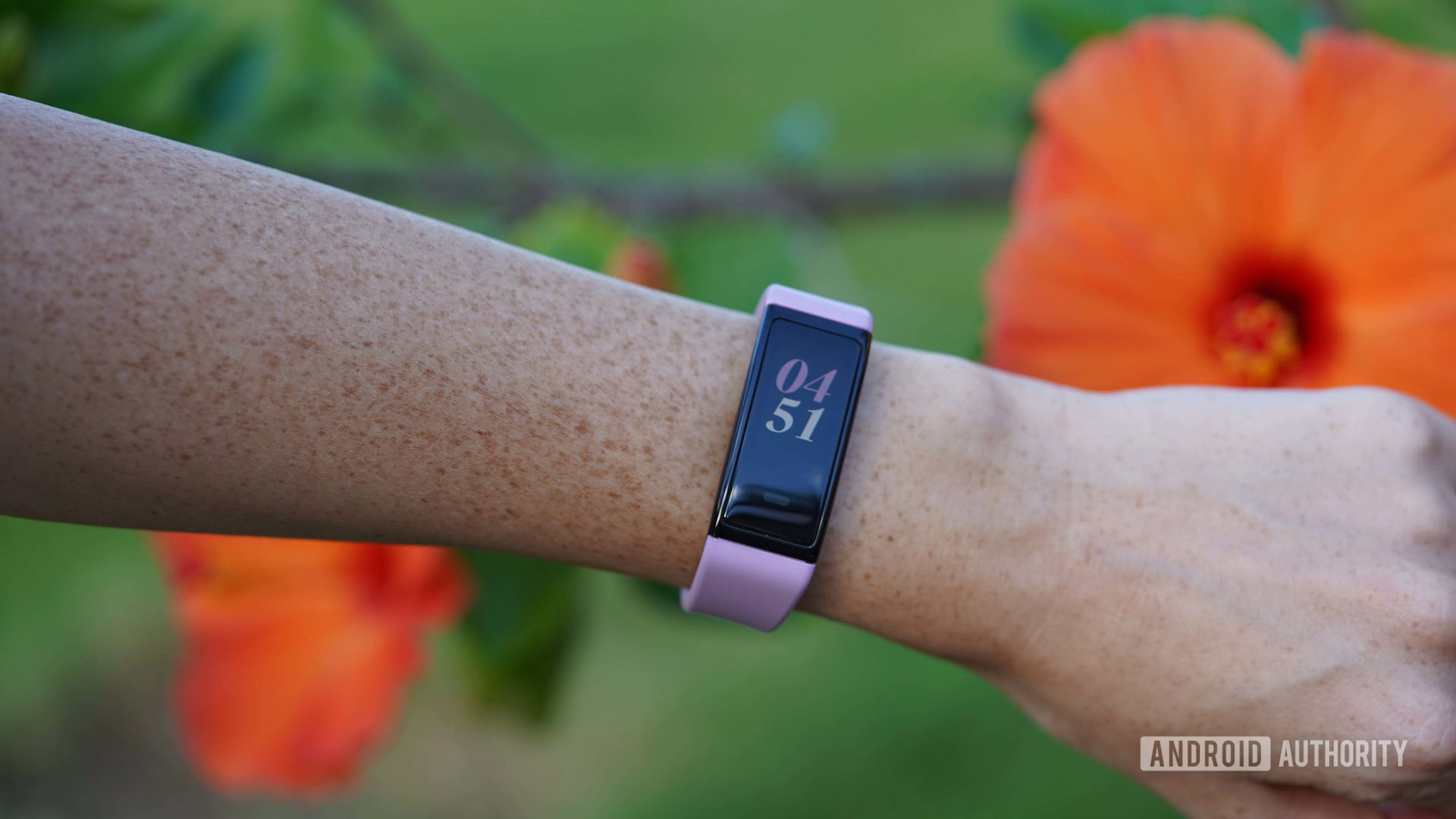
Amazon Halo View review: Costly conundrum
Published onJanuary 24, 2022
Amazon Halo View
MSRP:
What we like
What we don't like
Amazon Halo View
Amazon brings even more to the table with its latest fitness tracker, the Amazon Halo View. While still a very basic device, the Halo View boasts a brand new display and interesting new measurables in hopes of helping users on their wellness journey. Overall, it’s a decent device at a very good price, but users will need to sign up for a subscription to get the most out of it. Find out more in our full Amazon Halo View review.
What you need to know about the Amazon Halo View
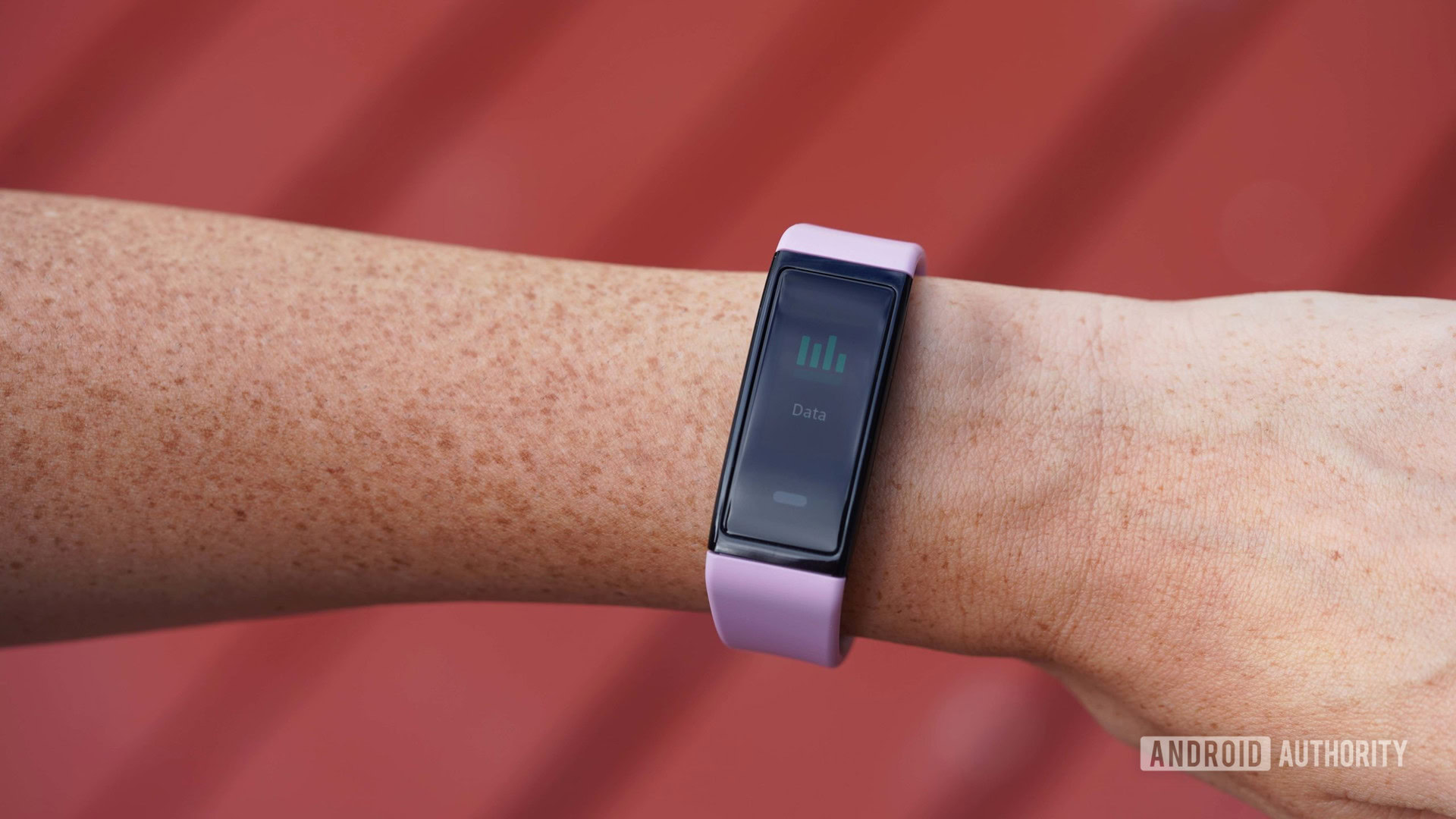
- Amazon Halo View: $79.99
The Halo View is Amazon’s newest entry-level health and fitness tracker. It launched on December 8, 2021, along with some additional features in the Amazon Halo companion app.
The device is designed for all-day wear as well as comfortable sleep tracking. It can pair with both Android phones and iPhones and is available in three colorways, including Lavender Dream, Active Black, and Sage Green. It is also available in two band sizes, small/medium and medium/large.
In response to popular demand, the device features a new AMOLED color display. This means accessing tracking info right on your wrist, not to mention checking the time, setting alarms, and receiving text alerts, is easy to do from your wrist. For many users, this upgrade elevates the Halo View to a more comprehensive and usable tracker than the previous generation.
Pricing for the Amazon Halo View is $79.99. However, many strengths of the device depend on an Amazon Halo app membership, and that means shelling out more cash down the road. While each purchase comes bundled with a one-year Amazon Halo app membership, the subscription costs $3.99 per month after the first year.
How is the new design?
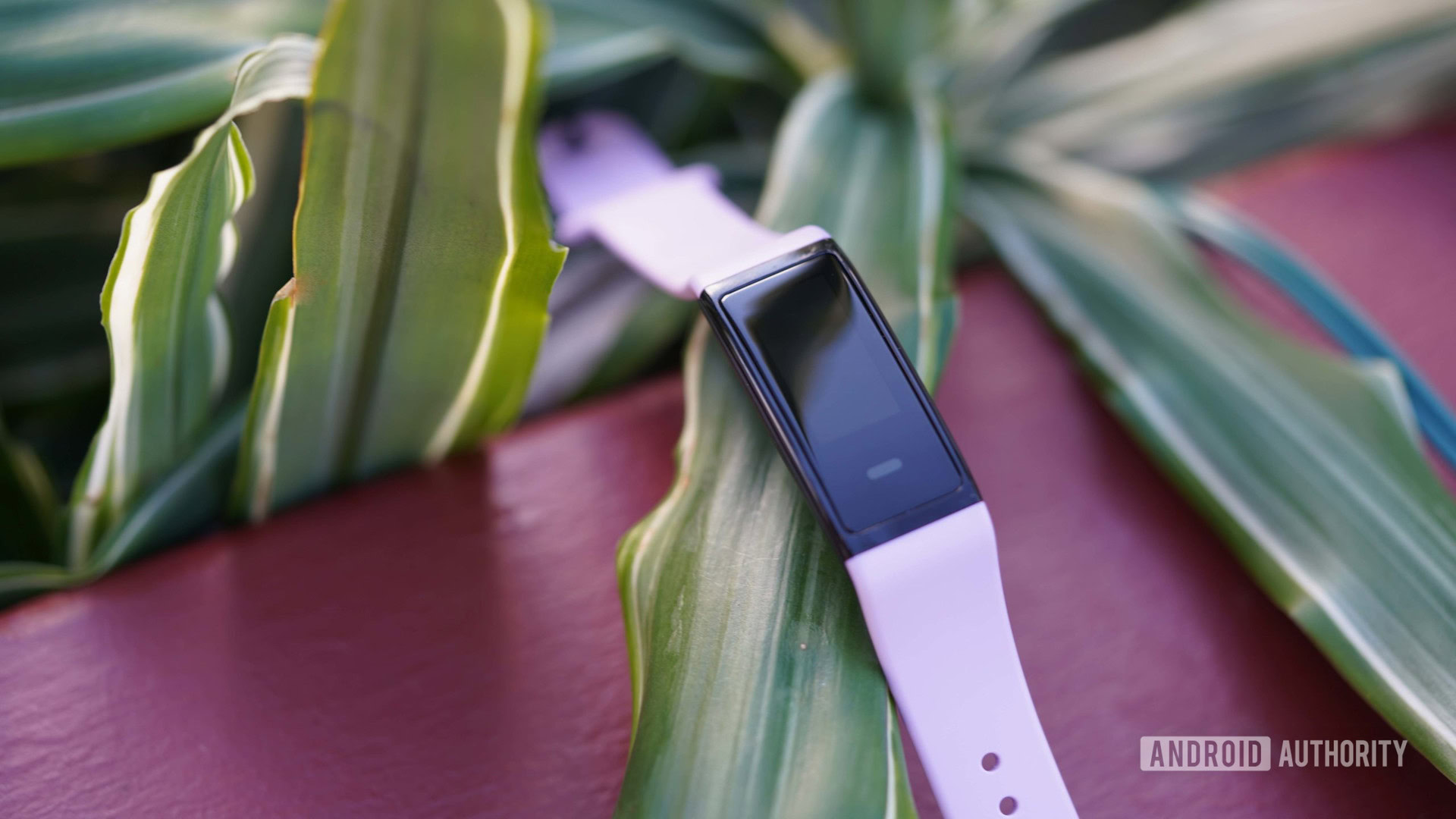
The Amazon Halo View’s design is very standard. It won’t turn any heads, but it’s comfortable, lightweight, and non-imposing.
The adjustable proprietary sport band provides a snug fit that stood up to sweaty workouts and didn’t bother me at night. Amazon calls the band’s material “high-performance TPU.” It feels like soft silicone, which I found comfortable, and it didn’t irritate my skin at any point.
The addition of an AMOLED display greatly improves the device's functionality, especially if you have a hard time justifying a wearable that can't tell you the time.
The Halo View’s new full-color touchscreen offers a selection of watch faces and displays basic stats. I found the display to be too dim in bright sunshine to read easily, especially mid-workout. However, compared to the Halo Band, the display is certainly fun to see.
The display allows you to utilize a stopwatch, set alarms or timers, and receive text notifications. Unfortunately, smartwatch features start and stop with that last one.
On-screen navigation is responsive and simple. Swiping up takes you to data, exercises, tools, and settings. Tapping each one opens a considerable amount of information and options. Swiping left or right from the watch face accesses heart rate, activity points, step count, calories burned, and your previous night’s sleep score.
The Halo View packs an optical sensor for monitoring heart rate and blood oxygen, an accelerometer, and a skin temperature sensor. I would have loved to see the addition of built-in GPS or even connected GPS support, but no dice.
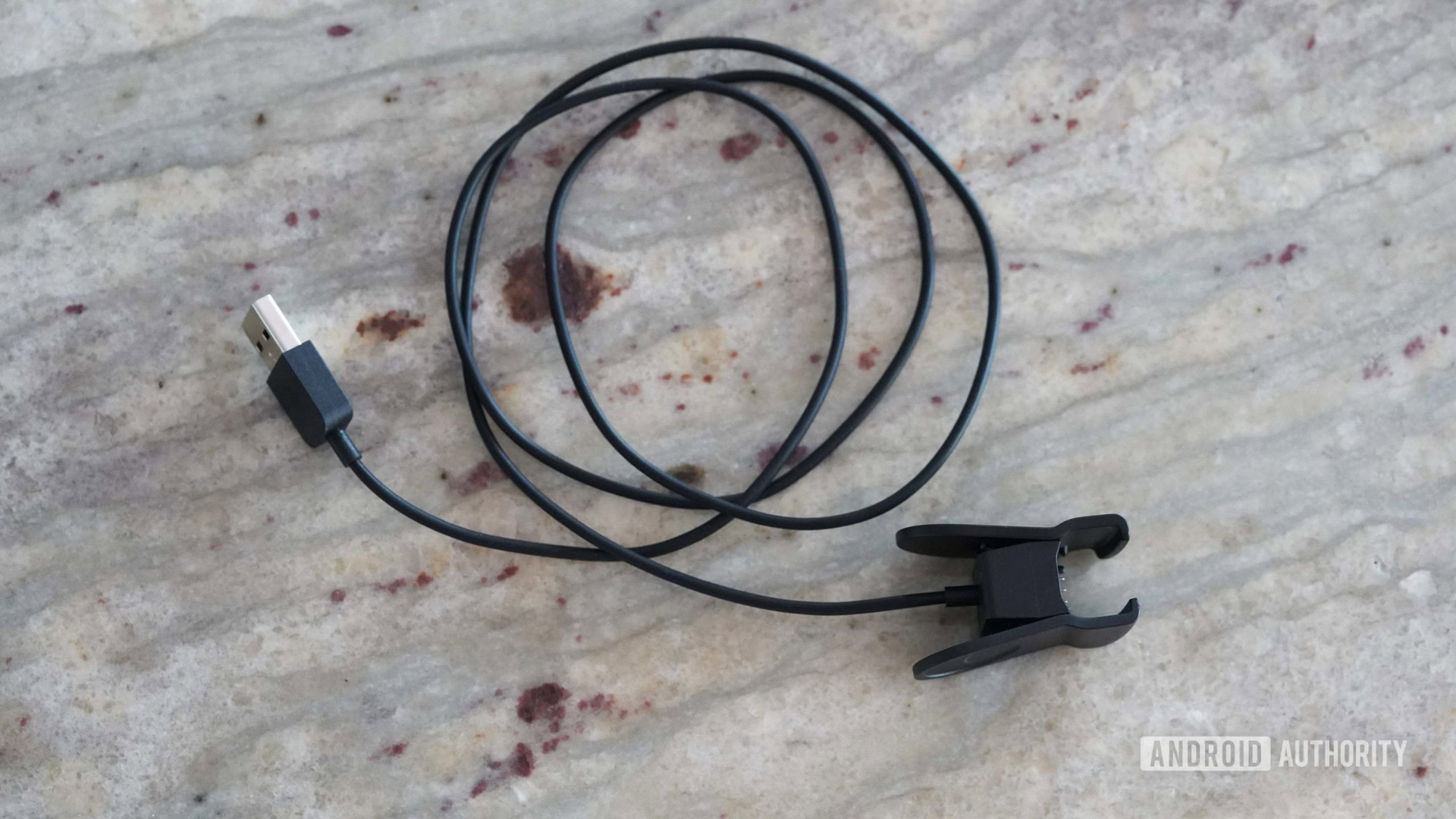
The touchscreen and sensors can impact the device’s battery life. That being said, I found the Halo View easily met and even exceeded Amazon’s seven-day claim during my review period. As a frequent Galaxy Watch 4 and Apple Watch user, I actually forget how nice it is to not have to stress about charging. Unfortunately, the Amazon Halo View uses the same finicky clip design we know and generally dislike. It’s loose at best and unnecessarily cumbersome.
What’s included in an Amazon Halo membership?
A free year of Amazon Halo membership definitely pads this purchase. Non-members do not have access to the Body, Movement Health, or Tone features discussed below, nor can they view health insights in the Halo app. In terms of activity data, only members can access an intensity breakdown and receive an activity score. Likewise, on the sleep front, only members receive a sleep score and can view their sleep stages. In the Discover tab, access to programs, recipes, and workouts is limited for non-members.
Without a membership, the Halo View is very much a basic tracker.
Without a membership, the Halo View is very much a basic tracker. Non-member users can track their steps, heart rate, calories, activities, and simplistic sleep data. They miss out on much of the depth of this device’s data offerings, as well as the few features that make it stand out.
Health and fitness tracking: Basic, but useful
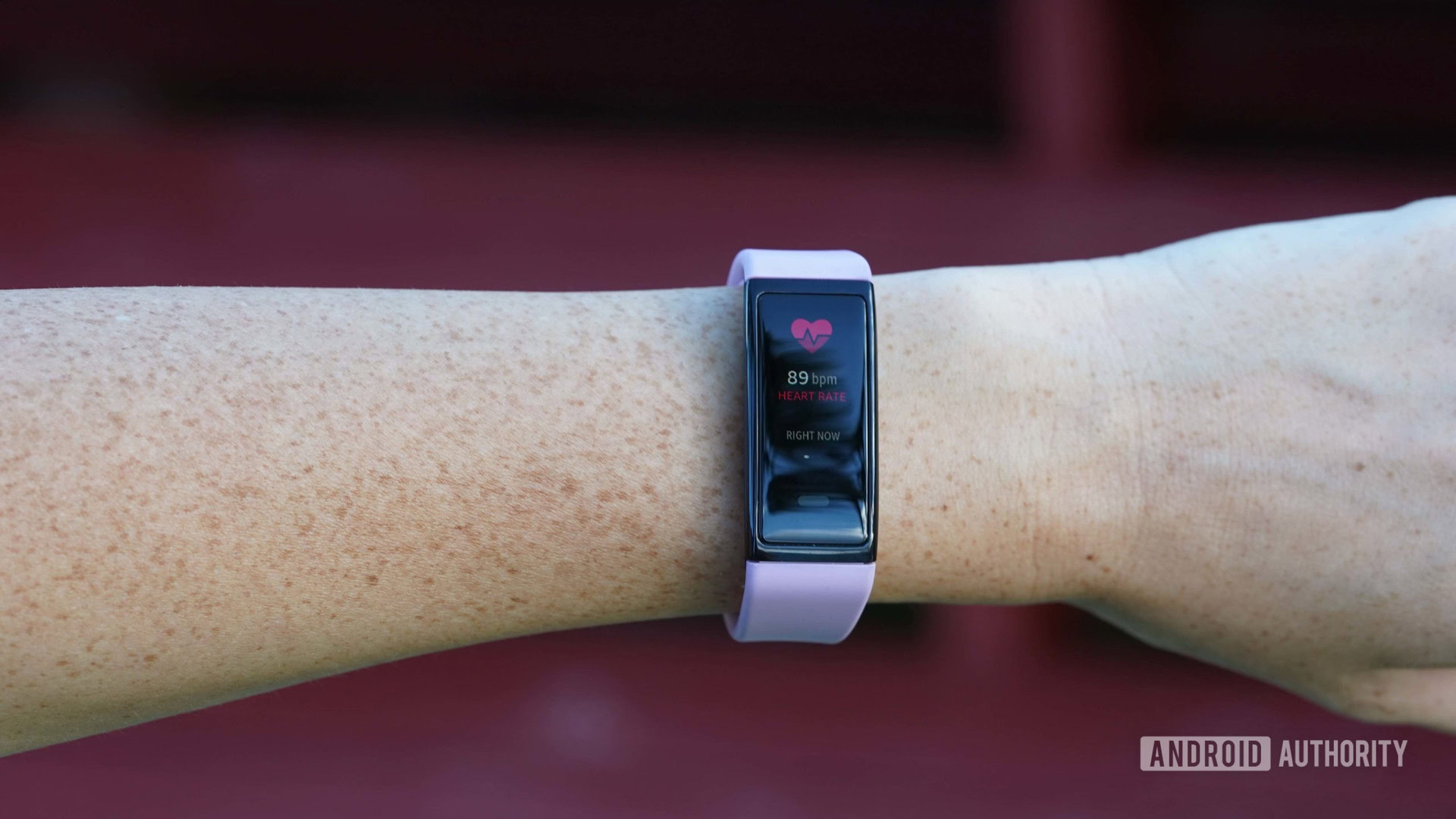
First and foremost, the Amazon Halo View is a health and fitness tracker. But how do its tracking features hold up? In general, not bad. Not to keep beating the same drum, but an Amazon Halo membership also brings a lot to the user experience.
As far as the data organization on the Halo View, it’s standard but comprehensive. You can access a daily, weekly, or monthly view of your activity, and review daily heart rate averages and maximums. You can also tap into details about steps as well as calories burned. On the companion app, tons of information and resources help contextualize the data and inform users about healthy goals and habits.
For someone new to health and fitness monitoring, the Halo View is a good option for tracking basics and nailing down actionable steps.
At rest, basic health measurements on the Halo View were commendable. Resting heart rate measurements were fairly accurate compared to my Wahoo heart rate chest strap, within 4bpm. Likewise, the SpO2 measurements I took throughout the review period lined up with my Samsung Galaxy Watch 4 within one percentage point. The Halo View’s SpO2 sensor is not certified for use as a medical device. As such, it should only be used to monitor general wellness. Finally, I found sleep tracking to be extensive (more details on that later).
On a few days, I did find my Halo View’s step count to be inaccurate. This could mean that either the device’s accelerometer or Amazon’s step-counting algorithms are off. According to the Halo website, “Activities with limited arm movement (such as walking with a stroller or walking the dog) may result in lower steps.” Likewise, activities with lots of arm movement, like sweeping my retched driveway, likely overestimated my step count. The bummer here is that step count is a major component of the Halo View’s feature set, and I wasn’t confident I could depend on the numbers I recorded.
Check out: The best health apps for Android
As for activities, users can start and record ten different activities: walk, run, cycle, fitness training, HIIT, weights, yoga, rowing, swim, or “other” on their wrist. More offerings would be nice, but ten is a good start for an entry-level device. The lack of GPS on the other hand is hard to excuse. Many competitors offer at least support for connected GPS, including the Fitbit Inspire 2. It’s a feature athletes will be hard-pressed to give up.
Another minor annoyance I found was that once you start an activity, you are locked into the activity screen. I would have liked to be able to use my timer while activities recorded in the background. There is also no option for automatic activity recording.
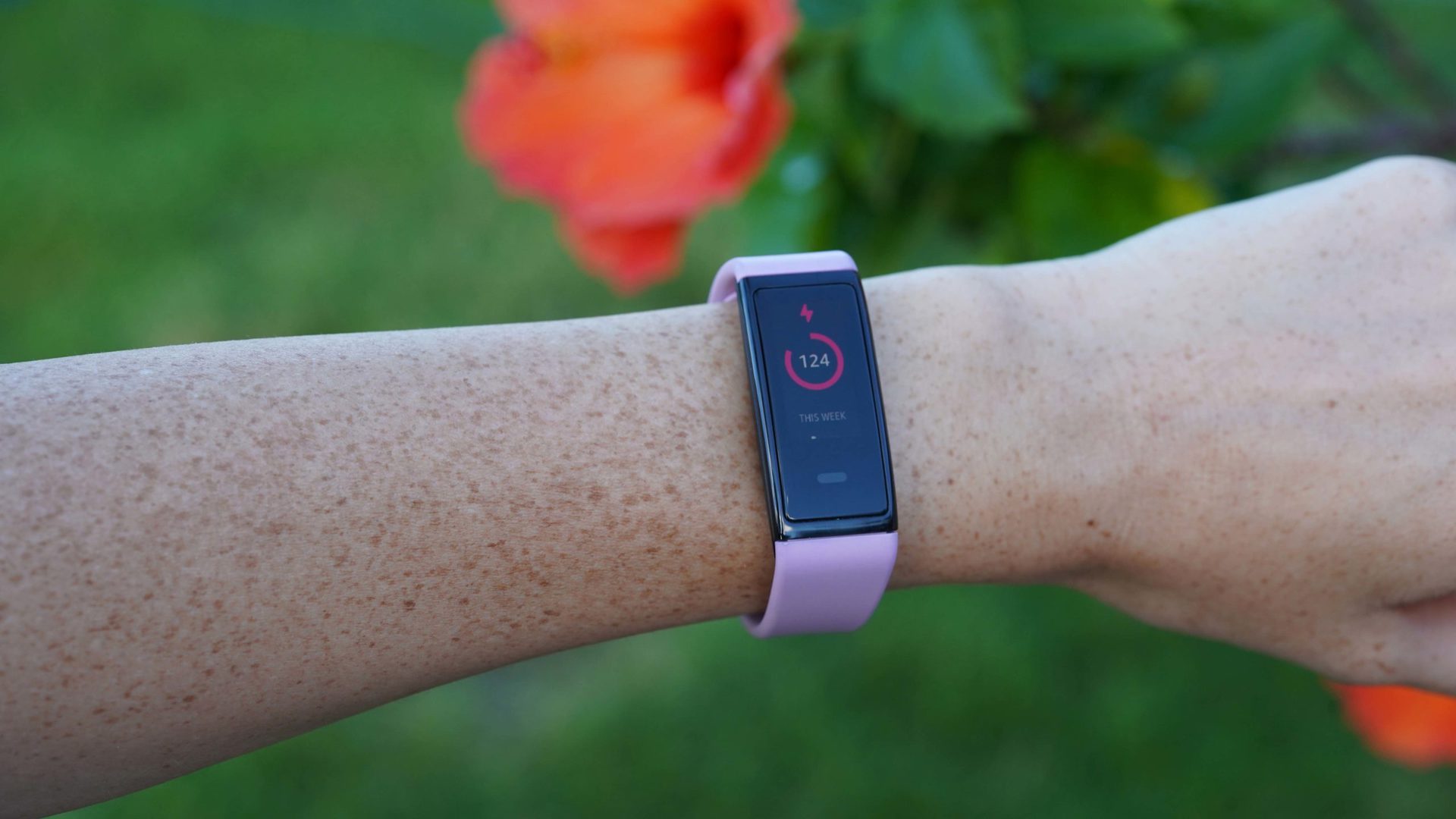
The Halo View’s proprietary Activity Points are a central part of the tracker’s function. Users earn points every minute the band senses activity, be it light, moderate, or intense. Intense activity (such as a run) banks points at a rate of two per minute. On the opposite end, light activity (such as emptying the dishwasher) earns users one point every 20 minutes. Instead of incentivizing daily goals, Amazon focuses on a weekly target of 150 points.
Oddly, the 150 point goal is nonadjustable. It’s also probably too low for someone who works out regularly. If I depended on my Halo View for guidance, I could easily hit 150 points halfway through the week and coast guilt-free all weekend. That being said, this figure was chosen according to recommendations from the American Heart Association. It’s a solid goal for heart health and a good starting point for overall wellbeing.
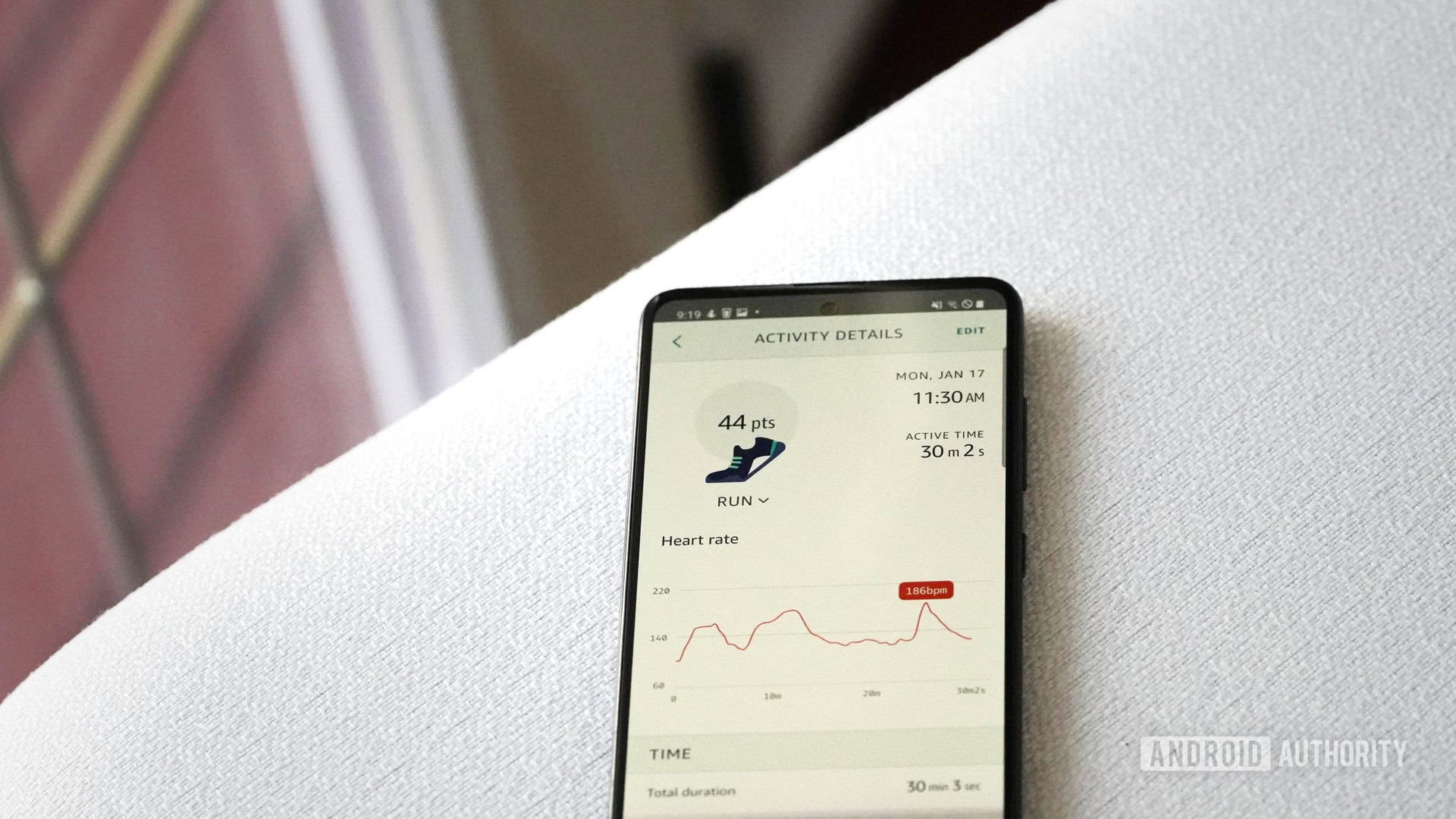
Speaking of heart health, heart rate tracking on the Halo View is another feature that leaves something to be desired. In general, the heart rate monitor appears to be fine, but Amazon doesn’t exactly allow you to dig through the data to find out anything useful, at least not easily. For one, the graph is very simplistic with no option to hover over peaks and valleys to determine exact values.
To find out more, the Amazon Halo app gives you an option to download your Health stats but the process is a hassle that can take up to 24 hours. I took the time to go through my downloaded activity data and determined that the tracker recorded my heart rate every 30 seconds. The graph above represents how the data for a particular activity was rounded out to create a continuous line.
Also read: The best fitness apps you can download
For a very basic tracker, and for most individuals interested in their general trends, this is probably enough data. With only two recordings per minute though, details will be left out. It’s simply not the device for anyone looking for advanced measurements. Again, it’s also just a pain to get your hands on the data that it does record.
As far as syncing your health and activity data to a third party, the options are very limited. You can not sync your Halo View data with any of the most popular platforms such as Samsung Health, Google Fit, or Apple Health. The only account linking offered in the Halo app is with John Hancock Vitality or WW (Weight Watchers).
What are the Halo Movement, Tone, and Body features?
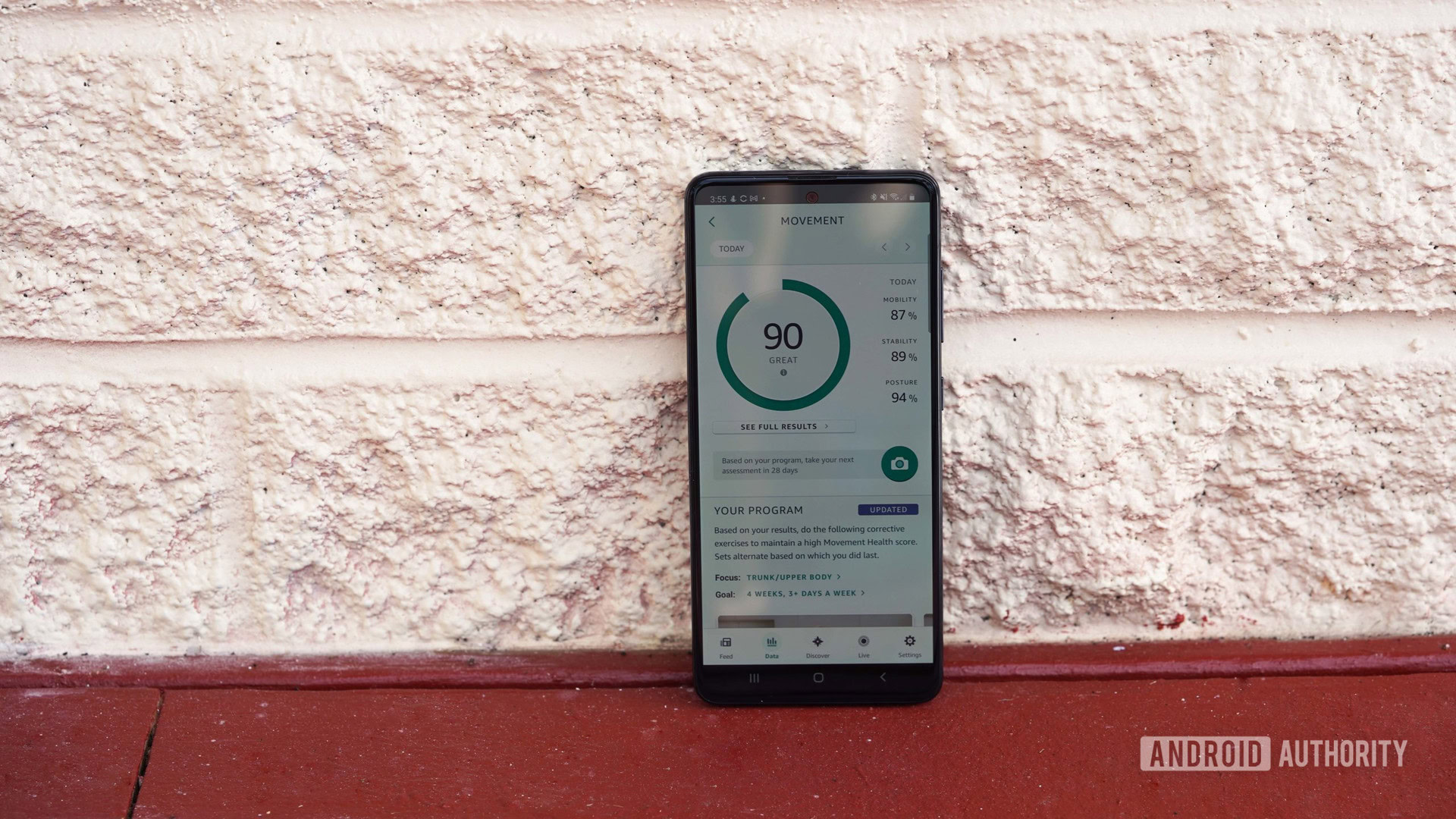
The Movement Health feature is one I was excited to try out during this Amazon Halo View review period. The assessment consists of five exercises that, once recorded, allow the device to estimate users’ mobility, stability, and posture. Having done a similar assessment for physical therapy in the past, this felt well-managed and well-designed.
The Movement feature grades how correctly your body is working.
Once you have results, the app suggests a program of exercises to help you improve problem areas. For example, according to my assessment, my shoulder mobility and stability were both at 78% (surprising, considering how strong I thought the aforementioned sweeping would make me). To help me improve, the Halo app recommended a number of upper body workouts, including yoga and band work.
Read more: The best at-home workout apps for Android
Conversely, I was not excited to try out the Halo View’s Body feature, and it went pretty much how I expected. This is the same controversial feature users found on the original Halo Band, and it hasn’t changed much. It asks users to pose in “minimal clothing” and performs a body scan to estimate body fat percentage. I took two scans while testing the Amazon Halo View. My results were consistent, albeit about five percentage points higher than my results based on body measurements or using the Body Composition feature on the Samsung Galaxy Watch 4.
You can also manually change your body fat percentage, and the 3D body model created based on your scans will depict how your body may change. I admit this was interesting, but it is easy to imagine how it could also be dangerous or triggering. The app does go to lengths to describe its privacy policies, and I did appreciate the option to immediately delete my scans.
The Halo View's Body scan feature could be useful for some, but it requires a lot of trust in a major company like Amazon.
To put it bluntly, the Body feature in general just felt creepy. I understand how images can benefit a wellness journey but I would prefer not to involve a third-party, especially one as large as Amazon. Other users might not be as sketched out by this feature, but in the end, it wasn’t for me.
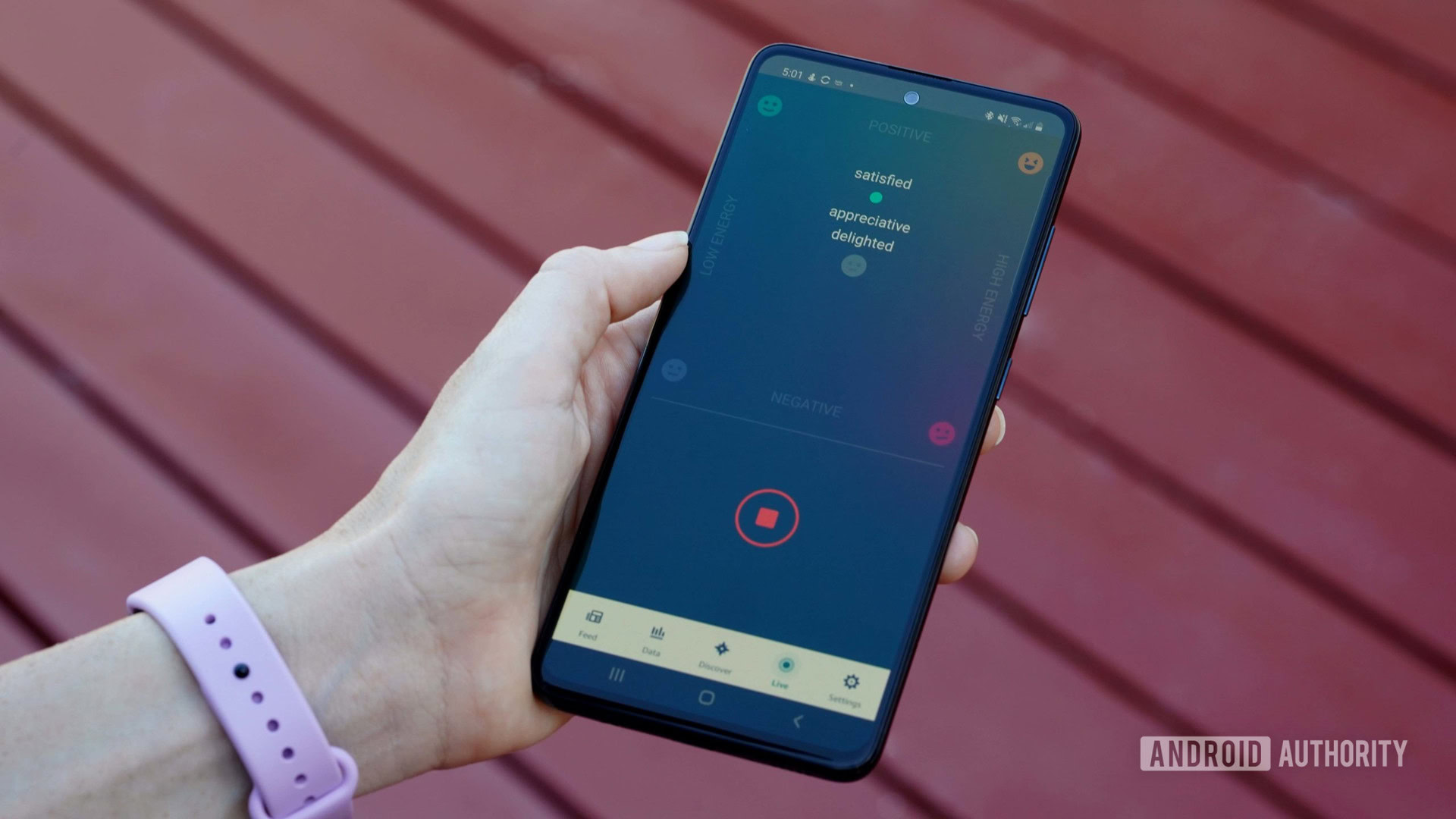
The third feature unique to the Amazon Halo lineup is called Tone. This feature analyzes users’ voices for energy and positivity to help individuals improve their tone of voice. The idea is that by understanding how you sound to others, you can improve how you communicate. Though this was also available on the last generation, the Halo View ditched the built-in microphone, so users have to open the Halo mobile app to use this feature.
This is significant because opening an app to start recording a conversation tends to take some authenticity out of the assessment. It’s hard not to think about your tone when you make a special effort to measure it. This feature would be more helpful if it provided feedback on your tone throughout the day.
See also: The best yoga apps for Android
In theory, I thought Tone would be great for keeping tabs on how I come across during phone calls (do I sound as tired as my mother likes to tell me?). Unfortunately, the feature would not register while I was on the phone.
All that being said, I can see how it would be a helpful tool for practicing a presentation or speech. The monitor responded accurately to my inflections when I tried to speak with higher or lower energy and my attempts at a positive or negative inflection. According to the data, my natural tone is 93% neutral which also feels very par for the course for me. Like the rest of the app, the Tone feature is packed with info to help users improve.
How is the sleep tracking?
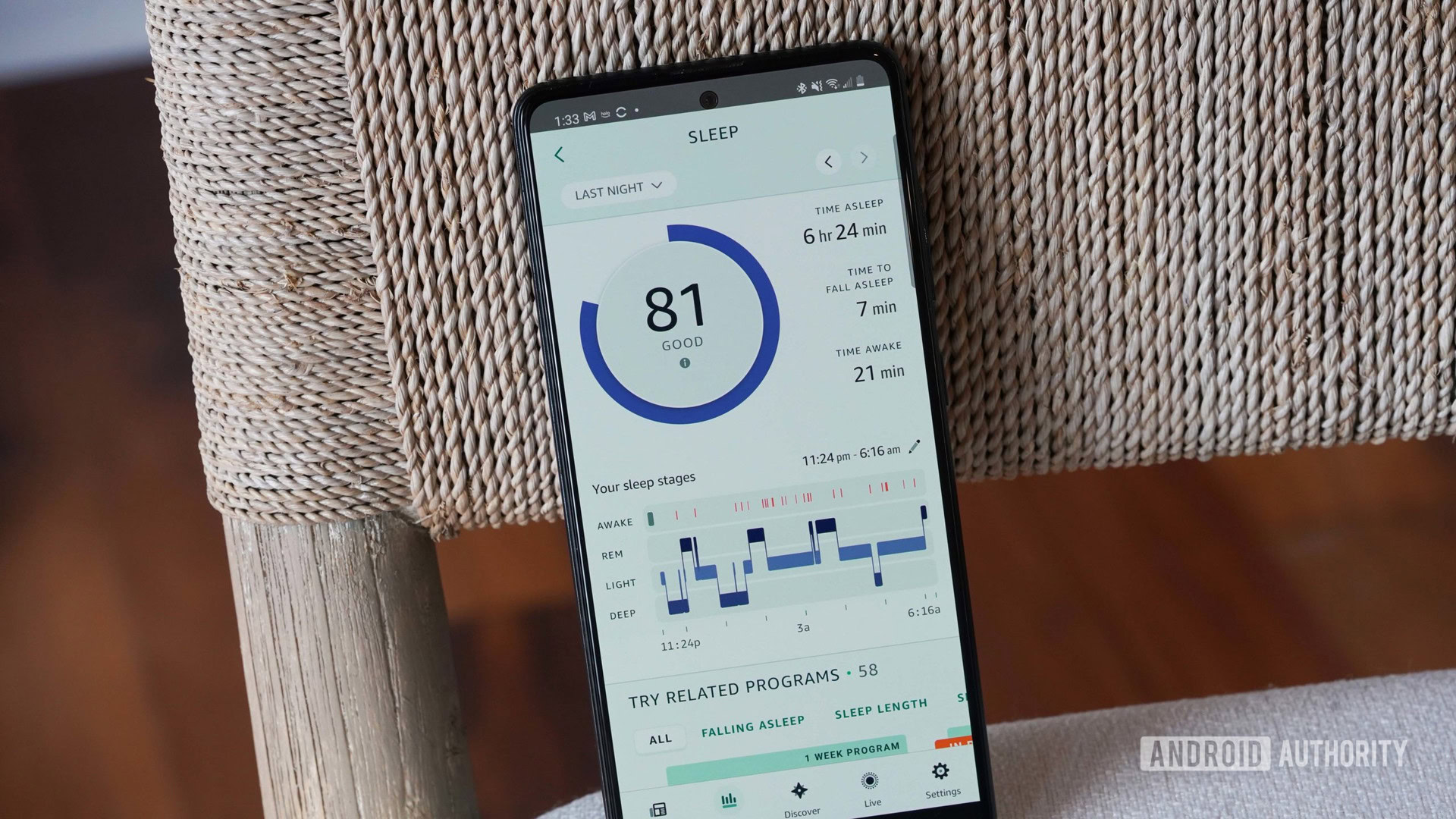
Sleep tracking on the Halo View is robust and I was impressed by how much information the Halo View collected. It captured sleep stages, sleep efficiency, sleep temperature, disturbances, and more. Many stats are reserved for subscribers only, however, while non-subscribers are left with just the basics.
Compared to my Fitbit Versa 3, the Halo View sleep data lined up as far as when I fell asleep and woke, and my sleep stages were nearly identical on both devices. However, one evening, it only registered one disturbance (or brief period of wakefulness) while my Fitbit Versa 3 recorded a second at 2AM.
Compared to the very basic native sleep tracking on more expensive devices like the Apple Watch Series 7, the Halo View’s tracking is commendable. Compared to comparably priced devices with just as much data (and possibly more accuracy) the Halo View’s sleep tracking is just okay. Most importantly, it depends largely on users signing up for a Halo app membership. Other trackers offer a similar experience with no membership required.
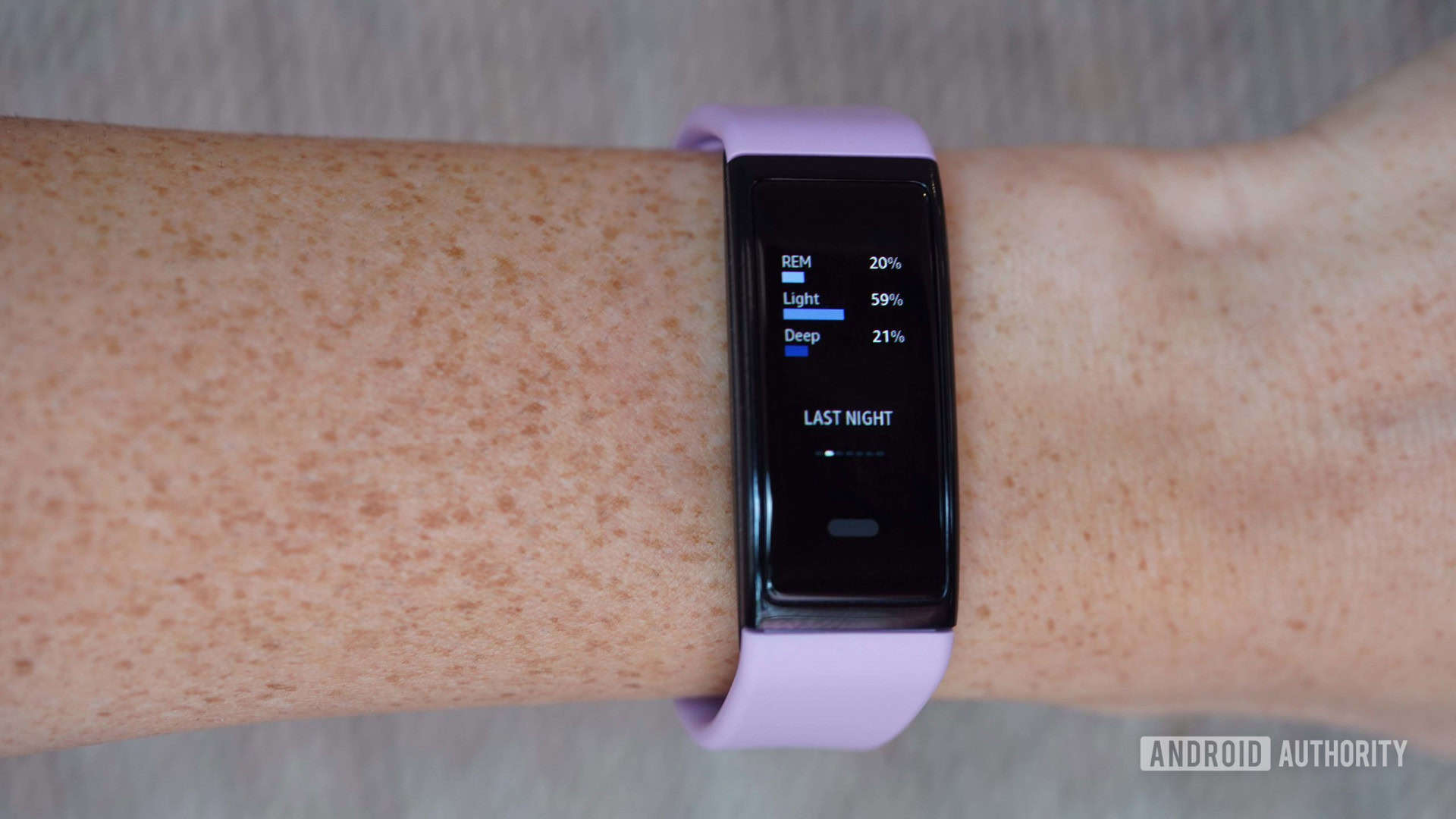
While relatively standard these days, I was grateful for the option to set a night mode schedule on the device. I also appreciated being able to view my stats directly on my device, postponing the need to open my phone first thing in the morning. To me, this was one of the biggest benefits of the device’s added AMOLED screen.
Anything else?
- Discover: The Amazon Halo app features an extensive library of workouts, sleep and mindfulness resources, nutritional guidance, recipes, and more in the Discover tab.
- Amazon Alexa: The Halo View can connect to Amazon Alexa in case you want to check your stats out loud. I found this feature redundant since I was wearing the band and could just look down for the answers. However, in theory, it’s a perk of keeping all things Amazon.
- Privacy: In the settings menu, Amazon offers users the option to delete health data, as well as any saved body scans or voice ID. You can also password protect your device with a four-digit pin.
- Water resistance: The Amazon Halo View is water-resistant up to 50m, making it ready for pool workouts.
Value and competition
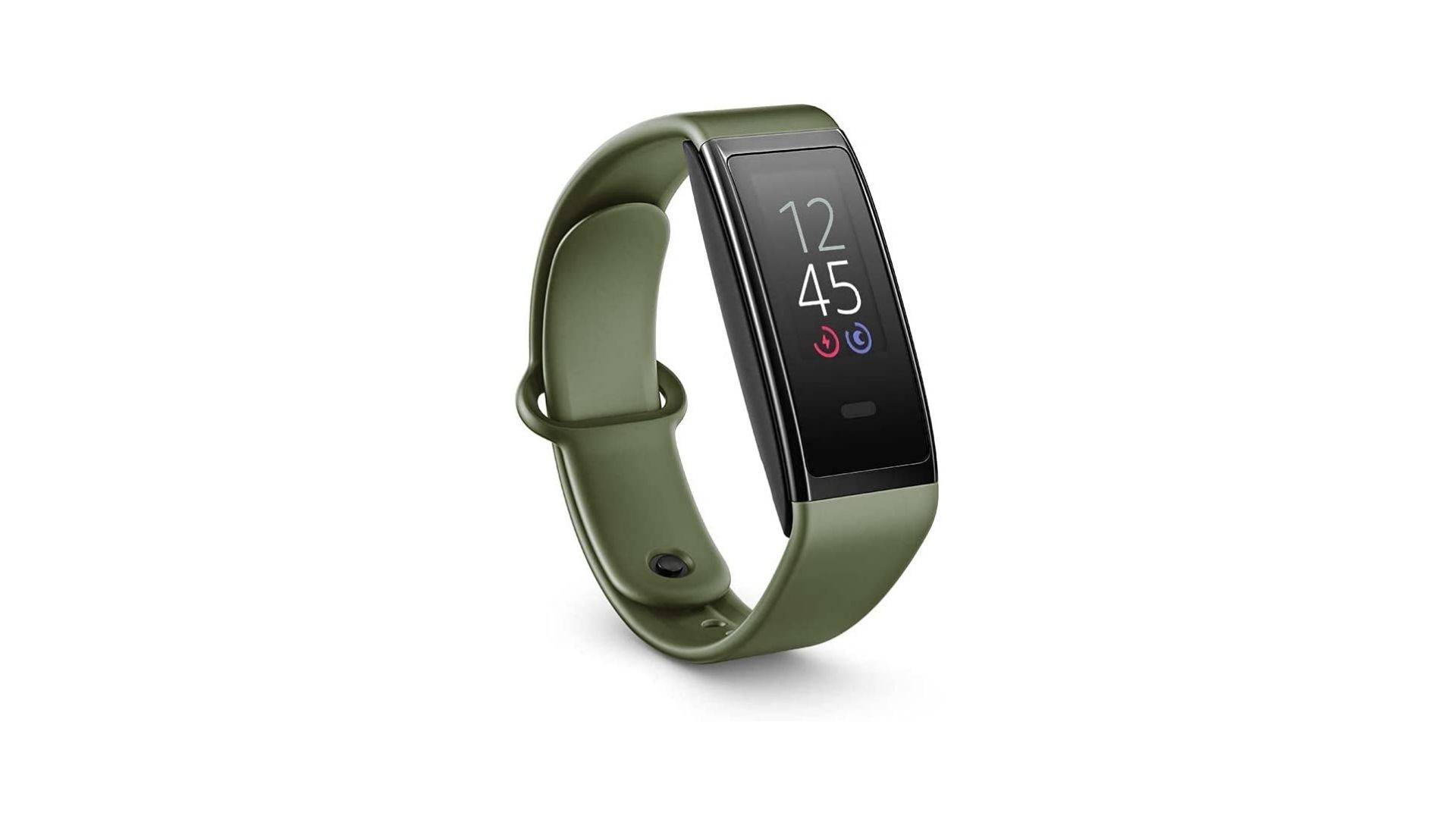
The Amazon Halo View is a decent, entry-level fitness tracker at face value. The device itself is comfortable, functional, and relatively user-friendly for first-time trackers. Since it comes bundled with a one-year Amazon Halo app membership, it also boasts a deep resource catalog. The Halo app offers unique wellness tools like Movement, Health, and Tone. However, once users are on the hook for $3.99 a month, the device’s value starts to degrade. For starters, the step count isn’t reliable, and the lack of GPS is a pretty big shortcoming to overlook.
Check out: The best fitness tracker deals
Compared to the Halo Band, the Halo View is worth the extra cash. If you’re not tied to the Amazon Halo experience, the Fitbit Inspire 2 ($99) is a good device with a comparable price and comes with a free year of Fitbit Premium.
At a little more than half the price, the Xiaomi Mi Band 6 ($45) provides a similar experience with more fitness tracking features and support for connected GPS. It also offers more smartwatch features, including NFC for contactless payments. The Xiaomi Wear app, however, could use some work. Alternatively, the Amazfit Band 5 ($39) is another decent affordable tracker. This device offers a 14-day battery life and basic health and fitness tracking.
Amazon Halo View review: The verdict
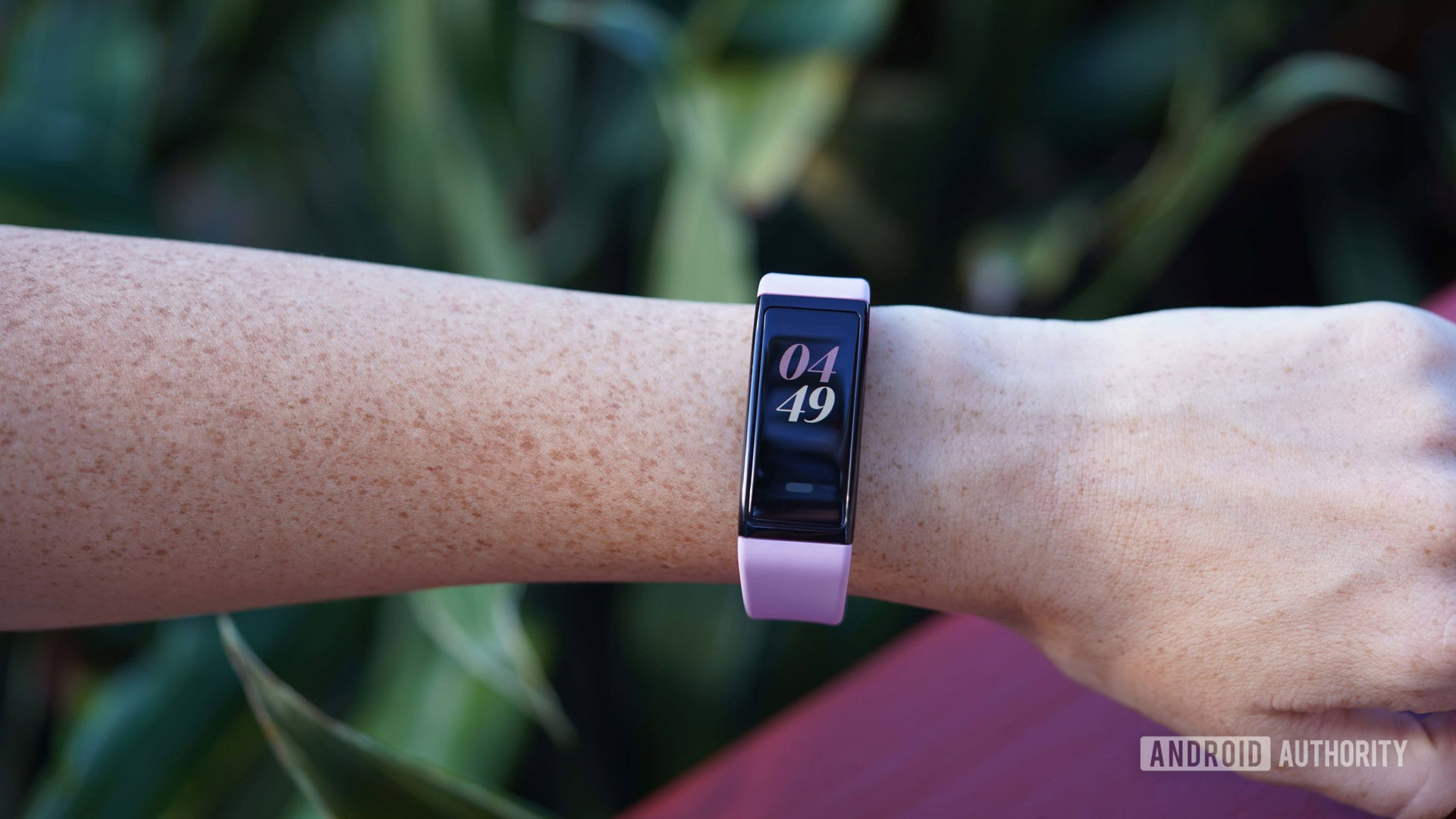
The Amazon Halo View is a fine device for someone just starting their fitness journey. It’s not the most complex wearable on the market, but it’s also not trying to be. It’s certainly not priced to be. The Halo View is a basic tracker with plenty of tools to help users get informed and stay motivated. That being said, better options exist in the same price range with important features like connected GPS, and without the need for a monthly membership.
Simply put, the Amazon Halo View is not worth buying if you don't intend on paying for the membership long-term.
Sure, the Halo app is packed with information and resources for anyone who wants to dive deeper. Together, the device and app provide unique tools for users to assess their wellness. Bundled with a one-year free membership to the app, the Halo View may be worth its low price tag. After the free year though, it’s hard to imagine justifying the monthly fee.